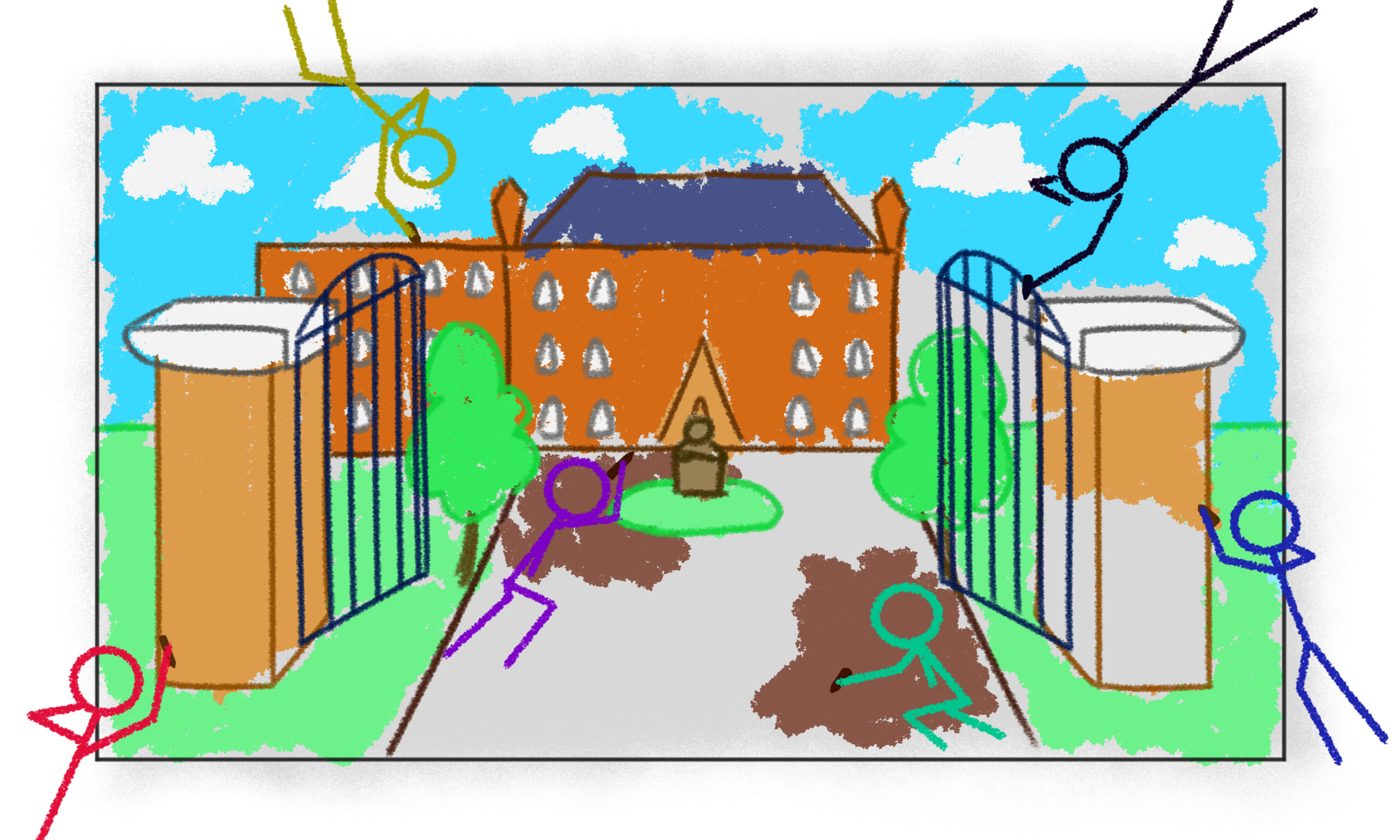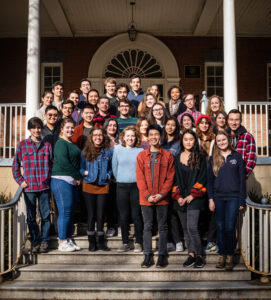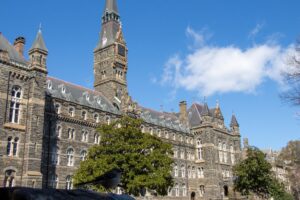Welcome, and welcome back!
Every August to kick off the year, the Voice Editorial Board likes to offer some advice for both incoming and returning students. In the past, our welcome editorials have emphasized the place of students here. Everyone tells you that you’ll “find your place”—but the path toward belonging can be harrowing and nonlinear.
It’s no secret navigating Georgetown can be a daunting task for many, especially for students of color, first-generation low-income students, disabled students, non-binary students, and students with other marginalized identities. And yet programs that actually benefit these students the most often lack proper funding or attention; inclusivity initiatives get tied up in bureaucracy; what is just is superseded by what is profitable. The university has a lot of work to do in making this place safe for all who come to the Hilltop, and expecting a seamless transition into an idealized “college experience” is a little ambitious.
While this transition is often made to be difficult because of Georgetown’s institutional status quo, our most powerful communities are stronger for it. So much of the real work of being a Georgetown student means building community in spite of university pitfalls and social inequities, rallying behind our peers for the betterment of our university as a whole. This sort of solidarity can be rare—but real change and reform can only happen with it in place.
Building community is especially important given the loss of institutional memory catalyzed by the pandemic. This year, the Class of 2023 is the only class of students that has known a pre-pandemic Georgetown. What Georgetown was then isn’t what it is now; so to truly welcome you here, we have to acknowledge that the “college experience” you have heard so much about isn’t what it used to be. And instead of mourning the loss of a hypothesized experience—that was flawed to begin with—we now have an opportunity to make things better.
A lot of what we said last year holds true today: Be gentle and patient with one another, don’t be afraid to try new things out, and reshape the status quo. But if the last school year was a year of relearning how to do college, this is the year of challenging it.
For one, we hope this year involves redeveloping our political willpower as a student body. The aforementioned loss of institutional memory has disrupted the momentum of student activism on issues such as reparations to the descendants of the GU272+ and improved sexual assault resources for Black survivors—two recent examples of powerful student protests at Georgetown. While the last two years saw activism in different ways, from advocating for a center for disabled students on campus to protesting for worker’s rights, the engagement and allyship just haven’t been the same.
More often than not, the emotional labor of activism on these issues falls on the students who are most affected by them—those who, amid the pandemic, have already been disproportionately burdened. We appreciate these students’ efforts, but appreciation isn’t enough. This labor should be shouldered by all. No one should be allowed to pass through the halls of Georgetown without more closely reckoning with its problematic past—a past that continues to suffuse through deeply embedded structural inequities—and engaging with the ongoing reparations movement. No one is exempt from understanding how they have benefited from Georgetown’s history of transgressions toward Black and Indigenous people. Educating ourselves is all of our responsibilities, but simply learning about a problematic past isn’t enough.
Work on racial justice remains especially important. Campus is littered with monuments to the institution of slavery, the administration has made many performative efforts at reconciliation, and racism notoriously conditions Georgetown’s academia and cultural spaces. We implore you to not just educate yourselves on how Georgetown has failed its marginalized students, but to demand real change so that maybe one day we will finally have a Georgetown that deserves us. Listen to your peers, provide allyship, engage in difficult conversations, and build protests. You are here now, so ask for better.
Part of that activism means looking out for your community in small ways, and keeping each other healthy during the pandemic is one of them. As masking and testing guidelines evolve, we ought to hold respect for the people around us by testing regularly, communicating openly, and honoring masking norms. This is how we can build a strong and resilient community more equipped to take on other challenges.
To returning students, your guidance here as leaders and allies is crucial. There is a lot to change about the Georgetown pre-pandemic status quo that so few of us remember, but that doesn’t mean there is nothing to keep. Seniors: Consider the good that has been disrupted, be it the aforementioned passion for activism or the pre-Zoom sense of community fostered by a late-night Epi run, and take it upon yourself to keep those things alive.
Maybe the key to finding your place here, whether it’s your first year or your last, is to find—or build—a community that might be entirely new, even if that may require vulnerability. College is, after all, an experiment in self-discovery. There isn’t a criterion you have to meet to qualify that you have had a “college experience,” because you define your college experience for yourself.
Just because your college experience hasn’t been, or won’t be, “traditional” doesn’t make it any less valuable. Seniors and juniors, the challenge of the pandemic has brought about losses. Take this year as an opportunity to leave an impact and make this university what you want it to be before you leave it. And to first and second year students, contribute to the change you want to see and deserve.
So this year, we won’t tell you that we’re certain you will love it here. Instead, we encourage transforming your time here—good and bad—into the will to make this place better.
With love, and hope for what comes next,
The Voice Editorial Board






Class of 2026, the moral of the story … contact your back-up school and renege your rejection.
Hoping future editorials cast a bit of sunlight, rather than the black clouds everywhere in sight.